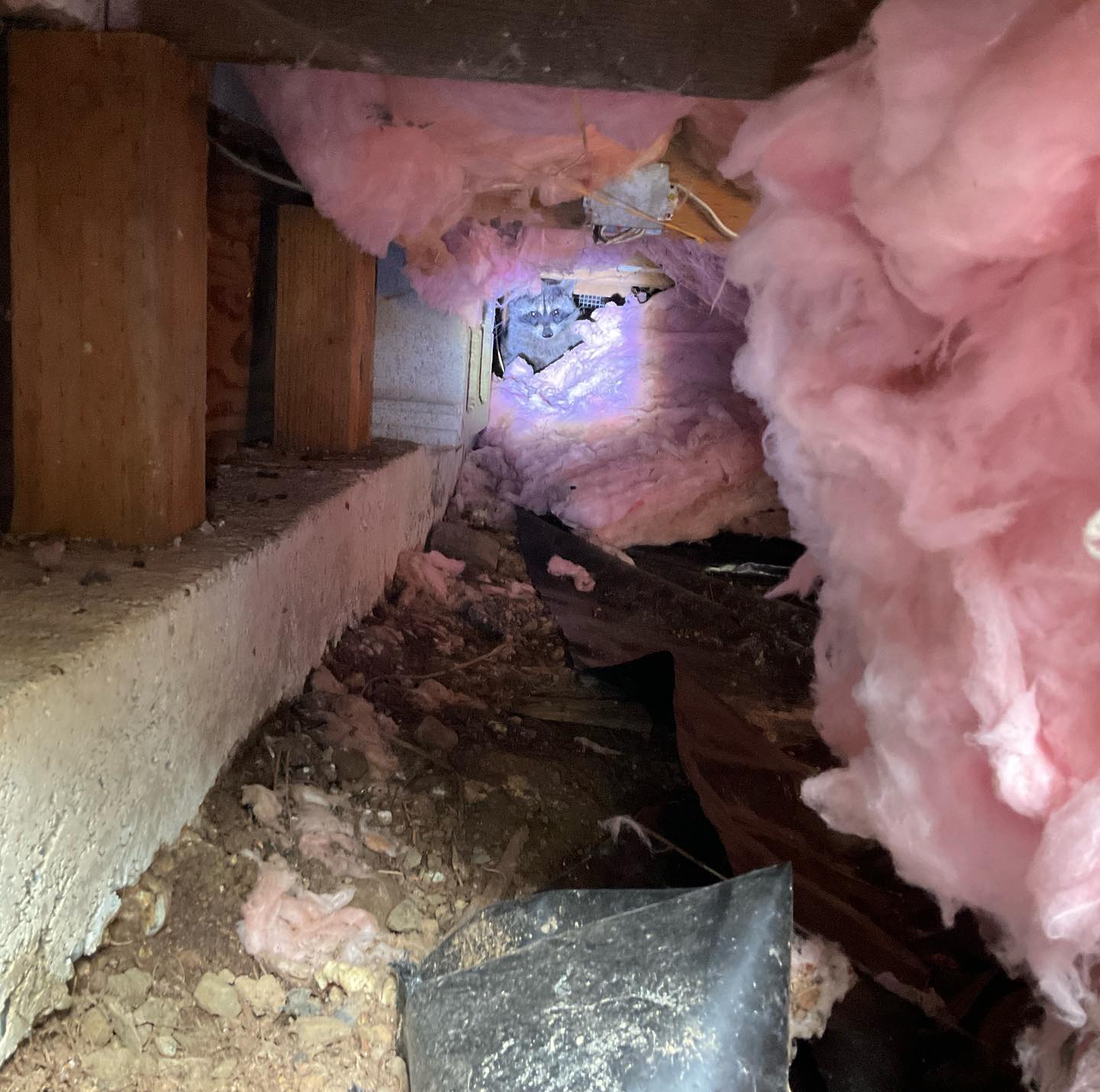Table of Contents

How to Get Raccoons Out of Crawl Spaces
Raccoons are nuisances. They tear up trash cans and spread garbage on lawns while searching for food. The pests can also carry rabies and transmit parasites. To make matters worse, raccoons often use secluded areas around homes for their dens. A raccoon in a crawl space is bad news for residents.
One of the most effective ways to avoid having a raccoon in a crawl space is keeping them out in the first place. Regular crawl space inspection and repair is the best way to prevent problems. Adding a mesh screen behind deck or porch skirting also keeps other pests from creeping indoors.
Raccoon Roundworm
Raccoons in crawl spaces soil their dens with waste, and parasites like roundworm are typically present in raccoon feces. Roundworm eggs infiltrate whatever they rest on, including the dirt floor of a crawl space. Cleaning up after a raccoon infestation requires protective gear to avoid infection.
Raccoon Control
It is important to remember that even though raccoons may look cute, they are still wild animals. They can become hostile if approached, especially when protecting their young. Homeowners with raccoons in crawl spaces should contact Critter Control to remove the pests safely.
Need Help with Raccoon Infestation?
Find a Critter Control near you.
Get them out.
Keep them out.®
Experiencing a wildlife or pest issue? We can help! Complete this form and your local Critter Control® office will contact you to assist.
- How to Get Rid of Raccoons
- Are Raccoons Dangerous?
- Raccoon Trapping Service
- Raccoon Control
- Baby Raccoons
- Dead Raccoon Removal
- Raccoon Diseases
- Do Raccoons Hibernate in Winter?
- Raccoon Damage
- Raccoon Diet
- Raccoon Poop
- Raccoons In Yards
- Raccoons in Basements
- Raccoons in Chimneys
- Raccoons in Houses
- Raccoons in Trash
- Raccoons in Trees
- Raccoons in Walls
- Raccoons on Roofs & in Soffits
- Raccoon Sounds
- Raccoon Tracks
- Raccoons in Attics & Ceilings
- What Does a Raccoon Look Like?